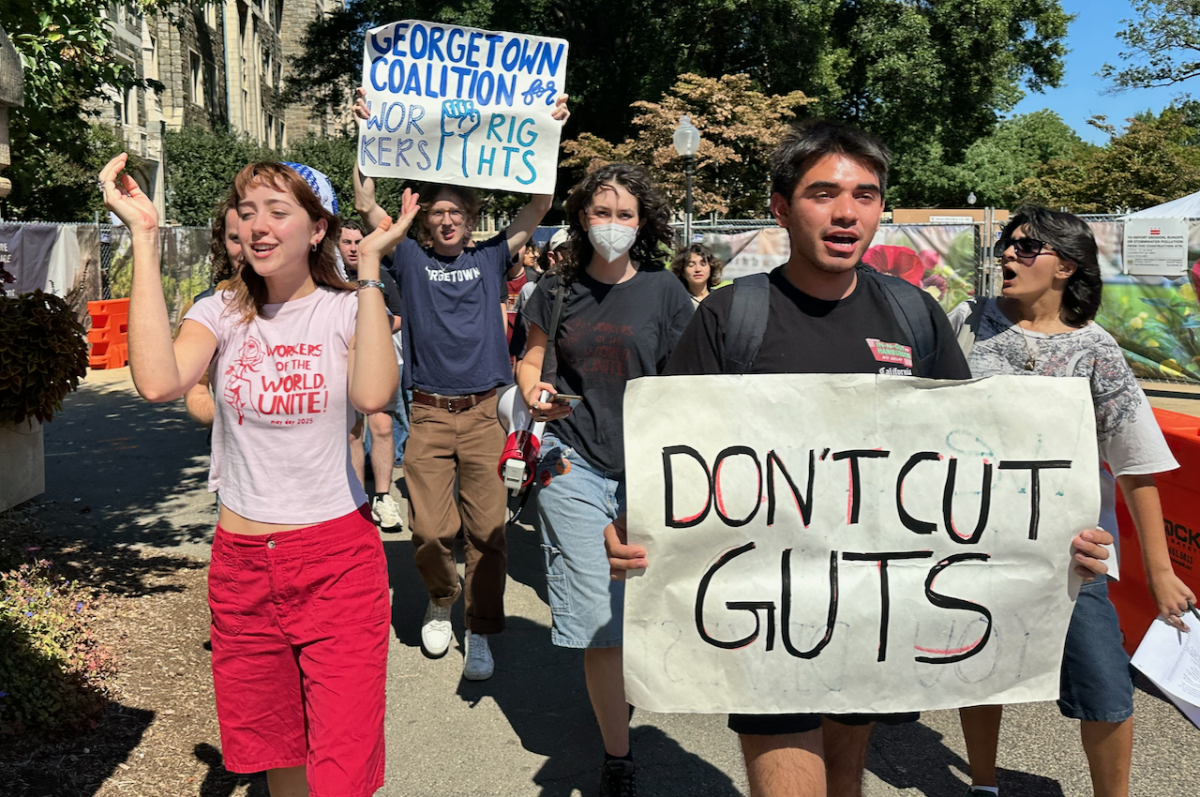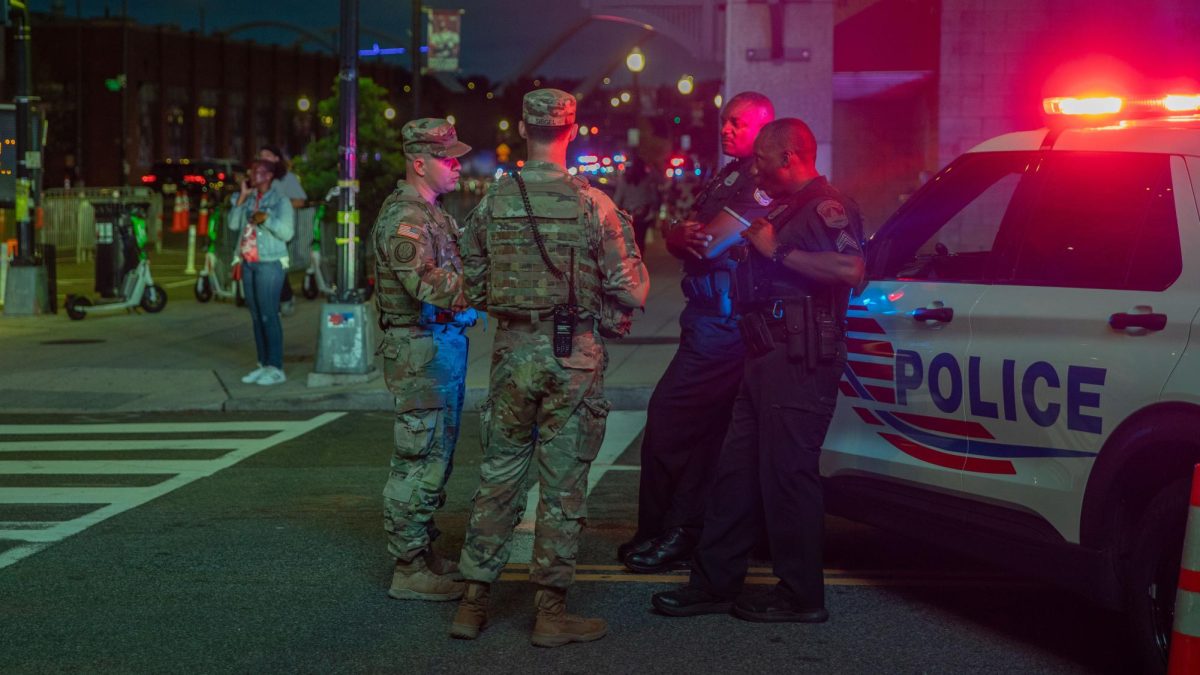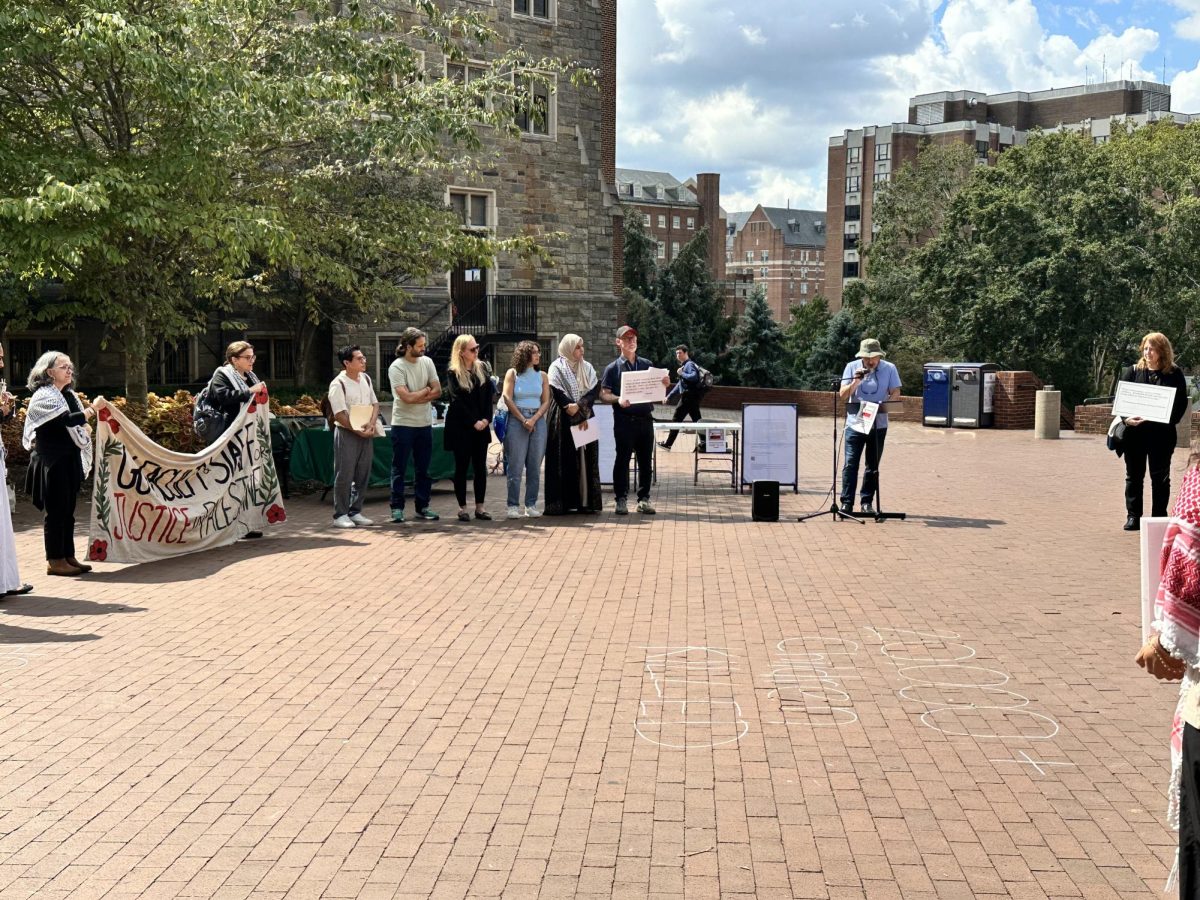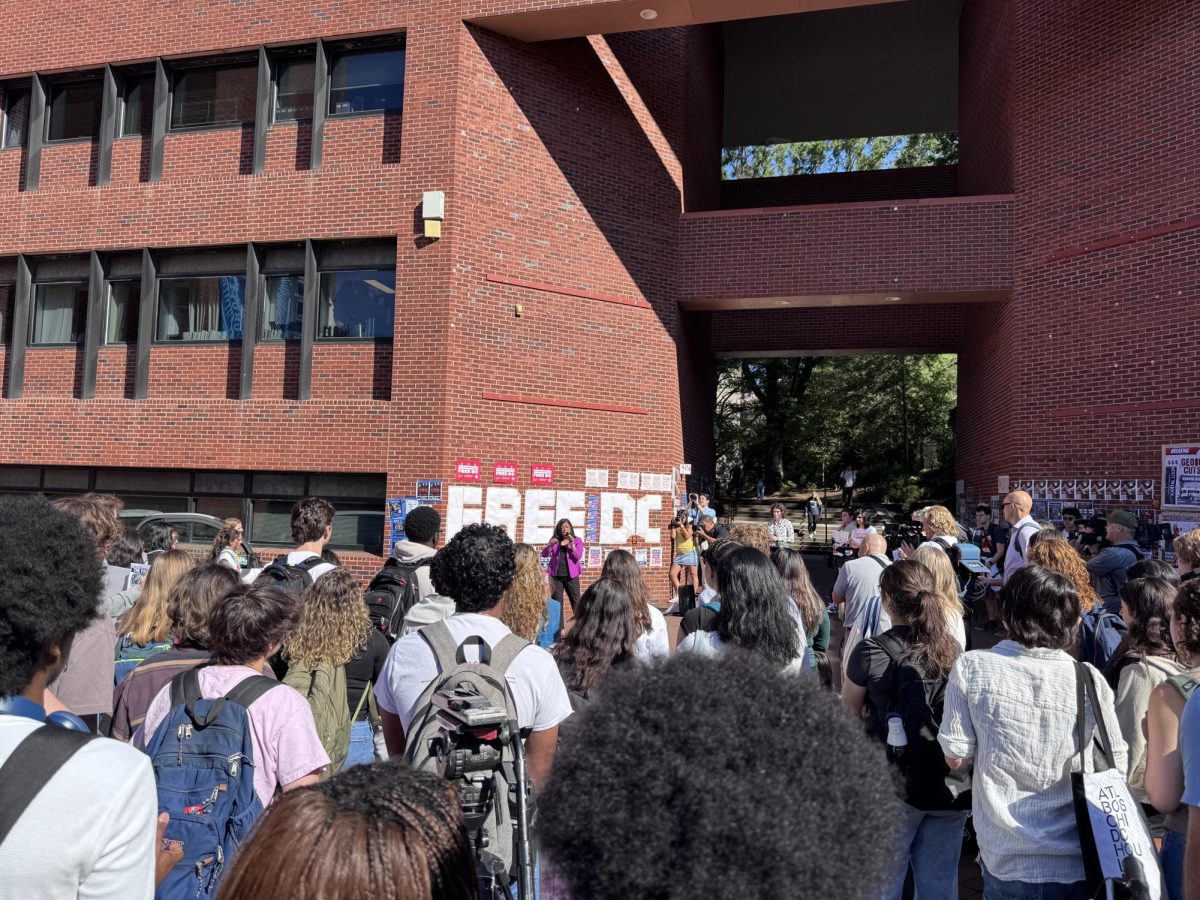A federal judge denied the Department of Justice (DOJ)’s motion to move detained Georgetown University postdoctoral researcher Badar Khan Suri’s case to a federal court in Texas, ruling May 6 to keep his case in the Eastern District of Virginia.
Judge Patricia Tolliver Giles ruled after hearing arguments May 1 that the jurisdiction for Khan Suri’s habeas corpus petition, a petition outlining whether one’s detainment is legal, should be in Virginia because Virginia is the venue where Khan Suri’s legal team filed the petition and where the government arrested Khan Suri. Tolliver Giles will hear arguments on motions to return Khan Suri to Virginia and to release him on bond May 14.
Tolliver Giles said the case should not be transferred because Khan Suri, the petitioner, was arrested and originally detained in Virginia, where the petition was also filed.
“The Northern District of Texas was not Petitioner’s ‘original place of incarceration’ nor is it the district in which Petitioner was permanently confined at the time his habeas petition was filed,” Tolliver Giles wrote in the ruling. “When his habeas petition was filed, Petitioner was not and had never been in the Northern District of Texas.”
U.S. Immigration and Customs Enforcement (ICE) agents detained Khan Suri, a senior fellow at the Alwaleed Bin Talal Center for Muslim-Christian Understanding (ACMCU), outside his home in Rosslyn, Va., March 17. As of May 6, an ICE online locator shows Khan Suri is still detained in Alvarado, Texas.
At the May 1 hearing, both Khan Suri and the government’s legal team discussed forum shopping, or strategically choosing a court to win a favorable judgment. Tolliver Giles ruled the government’s intention to move Khan Suri’s case to Texas, saying the government was likely attempting forum shopping.
“Drawing all inferences in favor of Petitioner, the Court infers that Petitioner’s transfer to Texas was not about bedspace,” Tolliver Giles wrote. “Indeed, given Respondents’ apparent post hoc rationalization that bedspace concerns motivated Petitioner’s removal from the District, it appears that Respondents’ goal in moving Petitioner was to make it difficult for Petitioner’s counsel to file the petition and to transfer him to the Government’s chosen forum.”
Tolliver Giles questioned the government’s argument that detention centers in Virginia were overcrowded, highlighting how the government’s lawyers originally cited potential overcrowding but later justified Khan Suri’s transfer due to insufficient bed space. At the Texas detention center, the court filings explain that Khan Suri is detained in a dormitory with at least 50 people, above the 36-person capacity, which meant he had to sleep on a plastic cot for two weeks.
This ruling does not outline the status of Khan Suri’s other petitions, though transferring his case may mean his return to Virginia.
Nader Hashemi, director of the ACMCU, said Tolliver Giles’ ruling marks positive progress in Khan Suri’s case.
“I celebrate the news that just came from the judge in Alexandria, Va.,” Hashemi told The Hoya. “It’s a step in the right direction in terms of justice for Badar Khan Suri and the restitution of his rights and suffering that he and his family have endured since March 17. I’m hoping this is going to lead to his release and that he’ll be able to return home to be with his family as soon as possible.”
Tolliver Giles said moving the case to Texas would deprive Khan Suri of access to his family and legal representation.
“It is not an exercise in forum shopping for Petitioner to file and seek review of his habeas claims in this District-the jurisdiction in which he resides, was arrested, and was originally detained,” Tolliver Giles wrote. “Instead, forcing Petitioner to litigate his case in Louisiana or Texas for that matter, many states away from his lawyers and family, would meaningfully deprive him of their ability to aid in his representation for the duration of these habeas proceedings.”
If the case continued in Texas, Khan Suri and the government could argue before the Fifth Circuit Court of Appeals, which is considered the most conservative appeals court in the country.
Hashemi said judges in Virginia and the Washington, D.C., area may be more open-minded than Texas judges, signifying an improvement in Khan Suri’s chances of release with the case jurisdiction in Virginia.
“Judge Giles, the judge who ruled today in Alexandria, Va., was appointed by the Biden administration,” Hashemi said. “Judges in the D.C. area tend to be much more open minded in terms of how they adjudicate these cases. And this is a part of a deliberate plan.”
“This just goes to show how ideologically extreme and punitive the Trump administration is when it comes to arresting these innocent people,” Hashemi added.
Hashemi also said the government’s choice to label Khan Suri a high-risk detainee contradicts Khan Suri’s background as a peace researcher.
“They want to deliberately hurt them, deliberately punish them, deliberately to the extent that the law inflict pain on them, which is why the Trump administration has designated Badar Khan Suri — a student of Gandhi, someone who studies peace building — as a maximum security threat in a prison in South Texas,” Hashemi said.





















